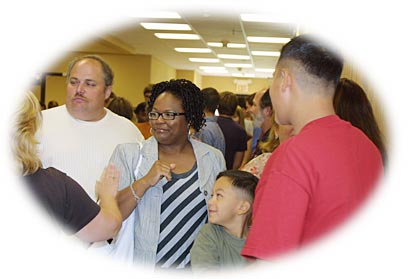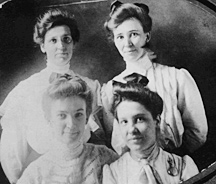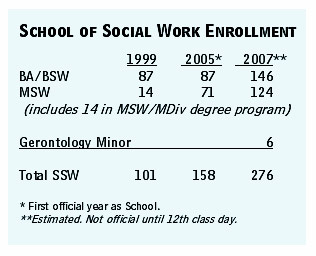Investors with moral agenda are bullish on faith-based mutual funds
Posted: 8/31/07
Investors with moral agenda are
bullish on faith-based mutual funds
By G. Jeffrey MacDonald
Religion News Service
WASHINGTON (RNS)—Religious activists with a moral agenda for corporate America used to rely primarily on consumer boycotts and sympathetic lawmakers to get Wall Street’s attention. But now their toolbox is growing—and there’s a lot more money in it.
Over the past decade, America’s market for religious investment products has grown by more than 3,500 percent, according to data from fund tracker Morningstar.
During the same period, faith-based mutual funds, which routinely agitate for social change in corporate board rooms or shun stocks they deem immoral, grew from about $500 million to more than $17 billion.
What’s emerging, observers say, is a market-based response to popular demand for ways people of faith can make their voices heard on issues closest to their hearts. And people of faith—especially social conservatives—are seizing what they see as a new opportunity to make a difference.
“It’s just a matter of growing up” and adding more sophisticated tools for advancing an agenda, said Ron Simkins, director of the Kripke Center for the Study of Religion & Society at Creighton University in Omaha, Neb. “Now, instead of boycotting Disney, they’ll be investing in Fox Family Films.”
Religious conservatives are mobilizing to attach a voice to the cash they already have on Wall Street. For example, the Tupelo, Miss.-based American Family Association is for the first time urging its 2.8 million online members to purge their investment portfolios of companies that support a “gay agenda” or “anti-family” practices.
Yet, as social conservatives increasingly tether their agendas to their investments, they’re hardly walking in lockstep. On the contrary, they’re choosing among a range of religious financial products—including 16 families of faith-based mutual funds—that vary in how they define corporate responsibility.
Evangelicals, for instance, are getting behind more than one vision. Some have contributed to the $600 million Timothy Plan, a family of mutual funds with evangelical roots and a pledge to avoid “securities of any company that is actively contributing to the moral decline of our society.” Translation: screening out companies—including many in the benchmark S&P 500 Index—affiliated with pornography, abortion, gambling, tobacco, alcohol and non-married lifestyles.
However, evangelicals also are behind much of the $900 million invested with Mennonite Mutual Aid Praxis Funds, which defies easy political categories. This group avoids companies such as Pfizer, which fund managers regard as manufacturers of abortion products. But it also lobbies on behalf of shareholders for eco-friendly corporate policies, and its pacifist orientation screens out stocks in defense contractors and bonds issued by the U.S. Treasury.
Mark Regier, stewardship investing service manager for Mennonite Mutual Aid, insists his firm hears evangelicals saying: “‘I want more. As an evangelical or conservative Christian, I do care about the environment. I do care about human rights. I do see the sense in being engaged with companies and encouraging them to move to more positive positions on social issues.’”
Promoters of what’s known as “morally responsible” or “biblically responsible” investing are expecting the values component to be a powerful drawing card.
Kingdom Advisors, a nationwide network of more than 1,200 Christian financial advisers, this year created a subgroup of those who offer biblically responsible investment products.
Centurion Funds, named after a faithful figure in the Gospel of Luke, launched less than a year ago with a pledge from company President David Lenoir to “not just avoid the ‘sin stocks’ but to look for the good in companies.”
And more than 600 investors, each committing at least $100,000 to private money management with Stewardship Partners in Matthews, N.C., have demonstrated there’s a market for customizing equity portfolios according to what CEO Rusty Leonard calls “red state (conservative) Christian values.”
For socially conservative activists, the process of engaging corporations has evolved gradually over two decades. Until now, the Mississippi-based AFA, for instance, has focused on consumer action.
Consumer pressure is easier than investor pressure to explain and to use in rallying a broad base of supporters, AFA President Tim Wildmon said.
But he insists his organization has been remiss in letting agenda-driven investing be the near-exclusive province of left-leaning mutual funds with a “socially responsible” label.
“We just dropped the ball on that,” Wildmon said. “We haven’t been very smart in that regard. But now that’s about to start changing.”
News of religion, faith, missions, Bible study and Christian ministry among Baptist churches, in Texas, the BGCT, the nation and around the world.



